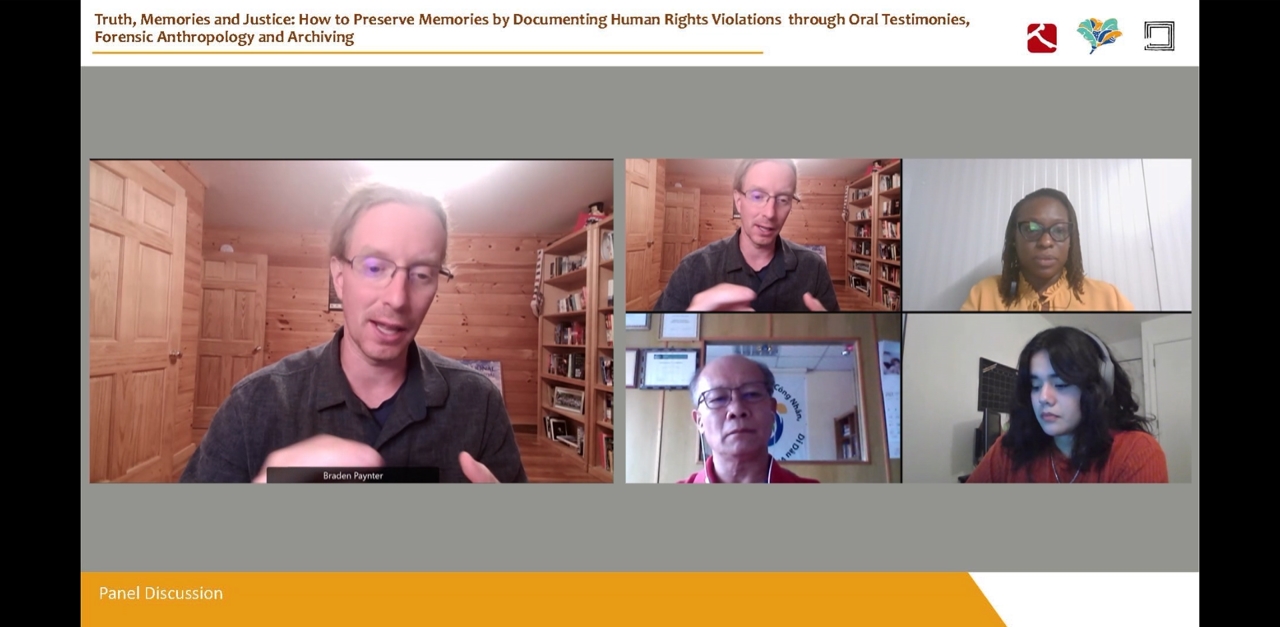Int'l Migration & Human Rights Online Forum and Workshop: Truth, Memories and Justice: How to Preserve Memories by Documenting Human Rights Violations through Oral Testimonies, Forensic Anthropology and Archiving

Truth, Memories and Justice: How to Preserve Memories by Documenting Human Rights Violations through Oral Testimonies, Forensic Anthropology and Archiving
Date: Oct. 21st, 2021
Day2: The Network of Museums for Migrants and Social Justice
Session 1: Truth, Memories and Justice: How to Preserve Memories by Documenting Human Rights Violations through Oral Testimonies, Forensic Anthropology and Archiving
From the moment a transnational migrant departs to the time he/ she reaches the destination country, the enormous difficulties and challenges of the journey are little known to outsiders. They easily fall prey to labor and sexual exploitation and violence while having trouble being accepted as equals by their destination society. How do human rights organization workers present truths and preserve memories through ways like oral testimonies, forensic anthropology, and archiving to realize social justice and bring about reforms?
Moderator:
Braden Paynter, ICSC
Speakers:
(1) Perla Torres, Family Network Director, Colibri Center for Human Rights, Arizona, USA
(2) Christine Alai, Co-Founder Utu Wetu Trust, Kenya
(3) Father Peter Nguyen Van Hung, Director, Vietnamese Migrant Workers and Immigrants Office of the Catholic Church, Hsinchu Diocese, Taiwan



